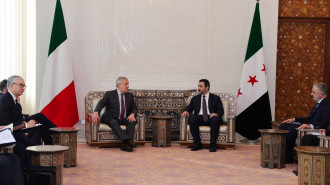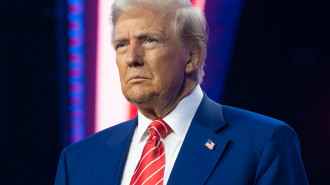Breadcrumb
Iran's 2015 nuclear deal negotiator Javad Zarif resigns as vice president
Iran's former foreign minister Javad Zarif, who negotiated a landmark 2015 nuclear deal with major world powers, on Monday announced he had resigned from his new post as vice president.
"To avoid any suspicions or excuses for disrupting the work of the government... I resigned from the position of vice president for strategic affairs last week," Zarif said on social media platform X, less than two weeks after newly-elected reformist President Masoud Pezeshkian chose him as his deputy.
Zarif cited several reasons for his resignation, most notably his disappointment with the line-up in the newly-proposed 19-member cabinet.
"I am ashamed that I could not implement, in a decent way, the expert opinion of the committees (responsible for selecting candidates) and achieve the inclusion of women, youth and ethnic groups, as I had promised," he said.
Pezeshkian on Sunday presented his cabinet, which included one woman, to parliament for approval.
The proposed list drew criticism from some among Iran's reformist camp, including over the inclusion of conservatives from the government of late president Ebrahim Raisi.
Zarif pointed out that he also faced pressure after his appointment as vice president because his children hold US citizenship.
An Iranian law enacted in October 2022 prohibits the appointment of those "who themselves, their children or their spouse have dual citizenship" to sensitive jobs and positions.
"My message... is not a sign of regret or disappointment with dear Dr. Pezeshkian or opposition to realism; rather it means doubting my usefulness as a vice president for strategic affairs," he said, noting he would return to academia and focus less on Iran's domestic politics.
Zarif was Iran's top diplomat between 2013 and 2021 in the government of moderate president Hassan Rouhani.
He became known on the international stage during the lengthy negotiations for the 2015 accord formally known as the Joint Comprehensive Plan of Action.
The deal was effectively torpedoed three years later when then-president Donald Trump pulled the United States out of the deal and reimposed crippling sanctions on the Islamic republic.
But it made Zarif a figurehead for a more open, outward-looking Iran that Pezeshkian pledged to strive for during his campaign, during which he was frequently joined by the former foreign minister.
![Iran's Foreign Minister Mohammad Javad Zarif. [Getty] Iran's Foreign Minister Mohammad Javad Zarif. [Getty]](/sites/default/files/styles/image_345x195/public/media/images/9D74CAD3-D05D-4298-B4D0-A5D3702CB25F.jpg?h=d1cb525d&itok=3pJnVq2-)





![Anthony Blinken speech [Getty] Anthony Blinken speech [Getty]](/sites/default/files/styles/image_684x385/public/media/images/6263436E-8ACD-4D3C-9055-25A7BE79DD5A.jpg?h=d1cb525d&itok=fLHmHCRG)
 Follow the Middle East's top stories in English at The New Arab on Google News
Follow the Middle East's top stories in English at The New Arab on Google News
![Many are vowing to boycott a film starring Amy Schumer, set to release next month [Getty]](/sites/default/files/styles/image_330x185/public/2152810030.jpeg?h=a5f2f23a&itok=wMRYjbOK)

